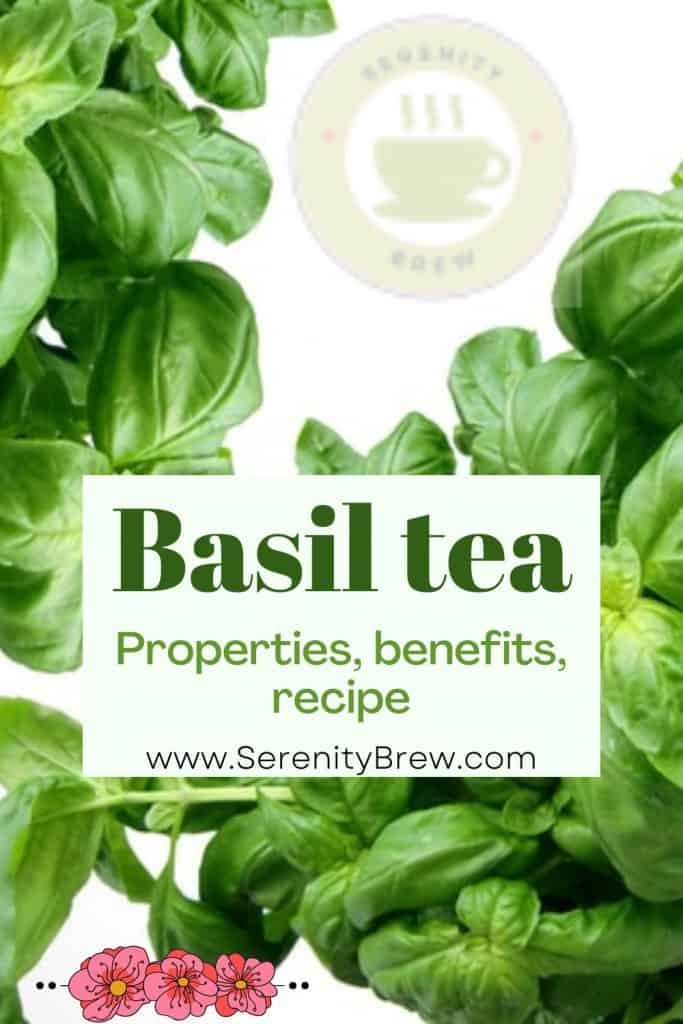
Basil is one of the most used aromatic plants in gastronomy, especially in Italian. Who doesn’t love a rich sauce with basil? Now, did you know that basil tea has numerous health benefits?
As you read, the best thing is that having a basil plant at home is not difficult at all: you need little space near a window and the right perseverance to water it regularly. It is that simple to have fresh basil to cook and prepare infusions.
Basil plant
Basil, scientifically known as Ocimum basilicum, is an aromatic herb from the Lamiaceae family. Originally from Southeast Asia and Africa, today it can be found all over the world.
This plant is annual, that is, it dies after the season. It can reach 130 centimeters although it is more common to see it in presentations between 30 and 50 centimeters.
Its oval leaves have an intense green color and a silky texture. During spring, white or violet flowers appear on spikes. After flowering, the seeds develop that, if you want to grow it at home, you can collect to sow later.
As for the necessary care, basil is a plant sensitive to cold; therefore, it is recommended to keep it indoors if you live in areas where frost is common. Of course, it needs sun to grow well, although ideally it should not be located in full sun since its leaves can burn.
At the level of irrigation, it appreciates the constantly moist but not flooded soils and the fertile and permeable soil. Do you dare to have a basil plant on your balcony or in the window? You will give a lot of color and flavor to your dishes. After all, basil is a common ingredient in pesto, tomato sauce, vegetable soups, and pizza, among other recipes.
The health benefits of basil tea
Alternative medicine has used basil for thousands of years to treat digestive complaints and intestinal disorders, but do these uses have any scientific basis?
Promotes digestion
Big binges give you a stomach ache but you don’t have chamomile in the cupboard? Calm down, take some basil leaves and prepare an infusion. As you read, the common basil that we use for cooking has properties that prevent gastric spasms and promote gastrointestinal flow.
In this way, thanks to its carminative effect, you can put an end to the discomfort caused by excess food, such as stomach pain or gas.
Antacid
Closely related to the previous point is its function as an antacid. Forget about the annoying unpleasant taste that goes up your throat and burns you. Basil tea will kill it, improving stomach flora and preventing the appearance of ulcers.
Fight diarrhea and constipation
Different investigations have indicated that basil has antibacterial and antifungal effects. For this reason, it may be the ideal option to combat bacteria that enter the body and cause constipation or diarrhea. A tasty solution!
Reduce the cholesterol
Inside basil leaves, scientists have found an oil made up of tannins, polyphenols, and flavonoids. These substances act on cholesterol levels, lowering them.
Would relieve stress
Although the data has not been obtained from research in humans but in animals, it is believed that the components of basil help relax the mind and body, thus being able to relieve stress.
Lowers blood pressure
Do you suffer from hypertension? Well, ask your doctor about the possibility of accompanying your usual treatment with basil tea. Consuming basil regularly helps reduce high blood pressure.
Helps lower blood sugar levels
In fact, basil extract is said to have antidiabetic properties because it would suppress endogenous glucose release and stimulate glycogenesis.
How to prepare a cup of basil tea

Like any infusion made with leaves, roots, flowers or seeds, its preparation is very, very easy. The only thing you have to keep in mind is to wash the leaves well before infusing them, as they could contain dirt or even harbor small bugs.
Ingredients
- 1 tablespoon of fresh leaves
- 1 cup of water
- Optional: honey to taste or a splash of lemon or orange juice
Elaboration
- Bring a cup of water to a boil.
- Add the basil leaves and turn off the heat.
- Let infuse for 10 minutes.
- Strain and drink. You can add lemon or orange juice, and/or honey.
Now that you know all the benefits of basil tea, have you wanted to have a plant in your home? It may be a good idea to have your properties just a few steps away.
